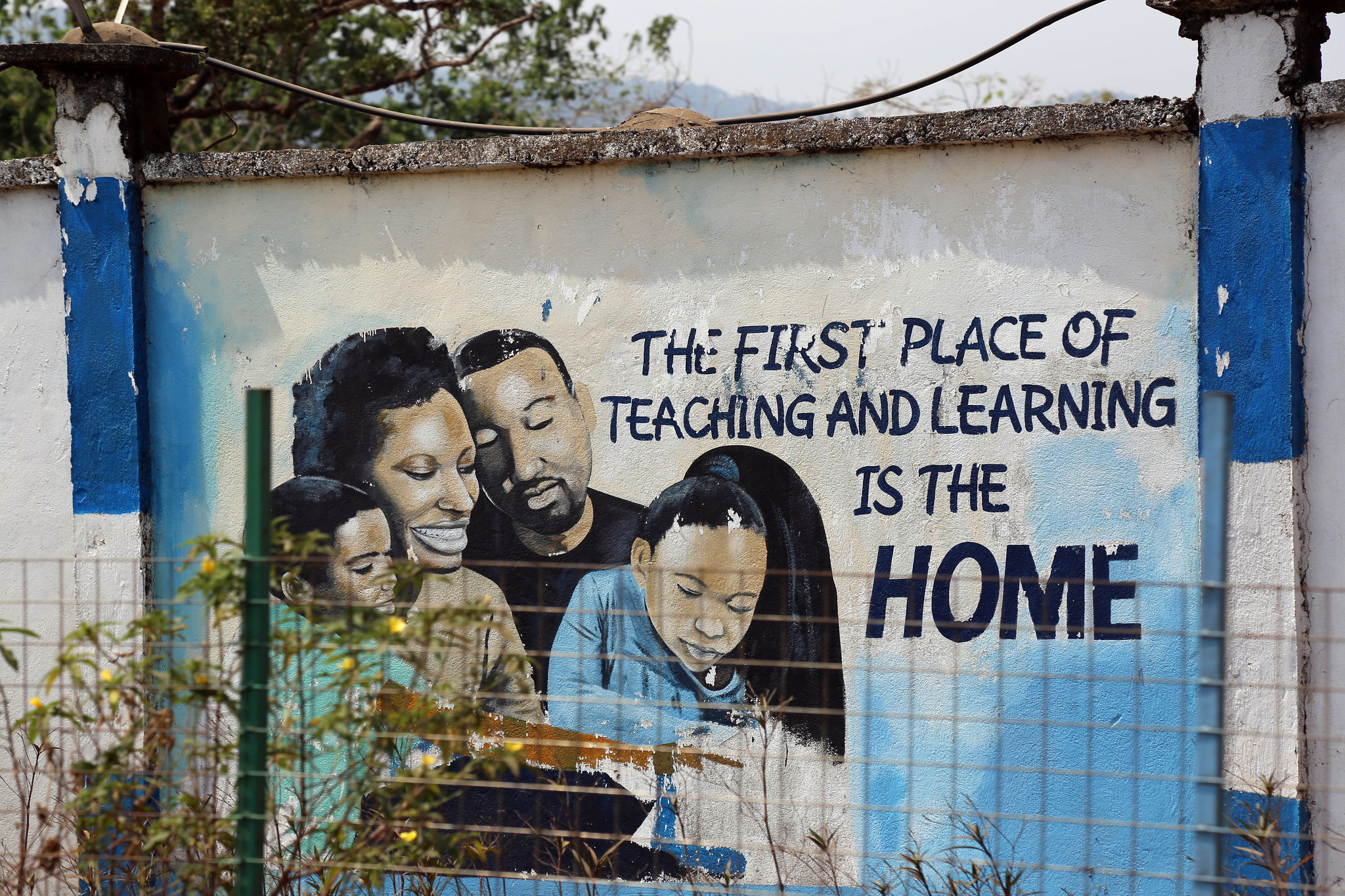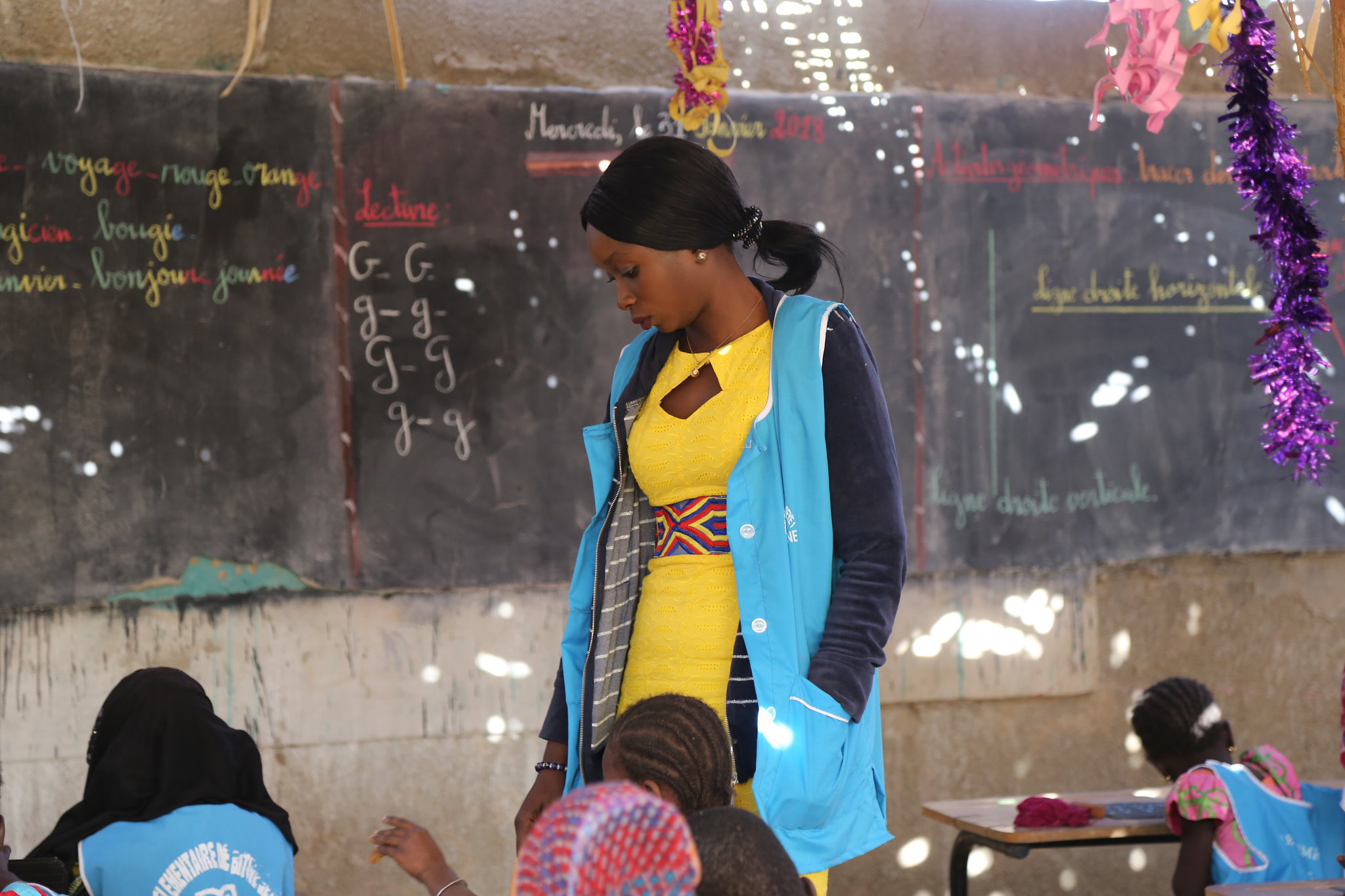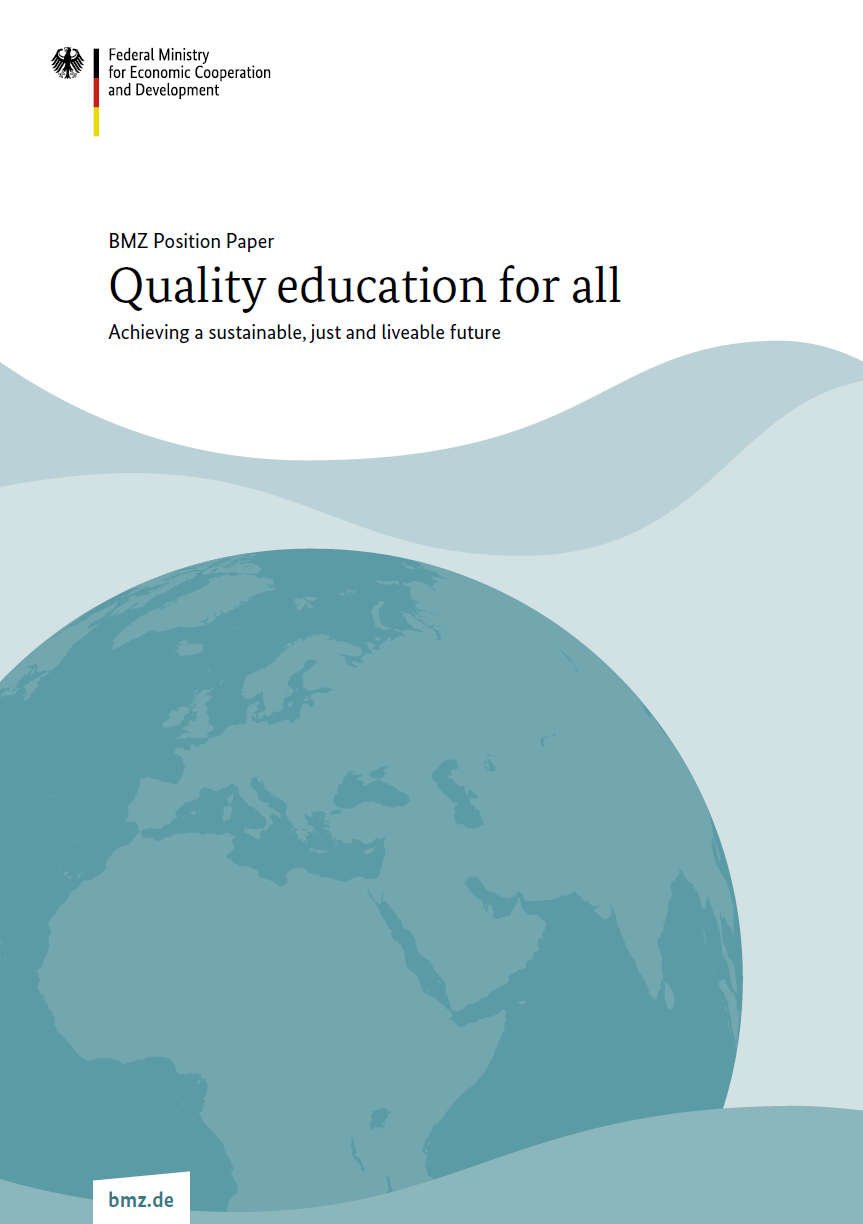Slogan on the subject of education on the wall of a teacher training college in Freetown, Sierra Leone
Copyright© GPE/Ludovica Pellicioli, via flickr, CC BY-NC-ND 2.0
General basic education Building basic work and life skills
A couple of years of kindergarten and primary school are not enough to prepare someone to lead a self-determined life and enter the labour market.
For the Federal Ministry for Economic Cooperation and Development (BMZ), basic education in the broad sense includes the following elements:
- early-childhood education (kindergarten/preschool),
- primary education (primary school),
- lower secondary education (up to the first school-leaving certificate that allows students to begin vocational training)
- and basic education for adults and young people geared towards helping them to catch up on missed schooling.
The aim of basic education is to deliver basic work and life skills and a basis for further learning.
In order to ensure a smooth transition between the various levels of education, German development cooperation activities in the education sector may also include the upper secondary level which prepares students for university studies (school-leaving exams, such as “Fachhochschulreife” or “Abitur” in the case of Germany).
Vocational education and training that provides the knowledge and skills required to work in a certain trade is an independent area for action in development cooperation. The following section deals with how German development cooperation supports primary and secondary education.
German activities
German development cooperation activities in this context are aimed at improving access to primary and secondary education and increasing the quality of the education on offer. Education can be both a separate priority area of support within German development cooperation and an element of projects in other priority areas – for example as part of a programme on sustainable economic development or on health. In line with the BMZ 2030 reform strategy the German government has been explicitly promoting multilateral partnerships to support basic education since 2020.
As at: 08/01/2024


